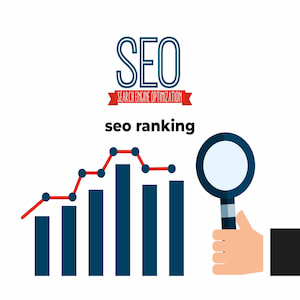What’s the Difference Between SEO and GEO?

Imagine you’re a business owner trying to get more eyeballs on your website. You’ve heard about SEO (Search Engine Optimization), and now there’s this new term, GEO (Generative Engine Optimization), floating around. What’s the deal? Are they competitors? Best friends? Or just two buzzwords trying to confuse us?
In this guide, I’ll break it down in the simplest way possible—no tech jargon, just straight-up insights. By the end, you’ll know exactly what sets SEO and GEO apart and how they impact your online visibility.
What is SEO?
SEO (Search Engine Optimization) is the art and science of getting your website to rank higher on search engines like Google. It involves optimizing various elements like keywords, content, backlinks, and site speed to improve your visibility.
Key Elements of SEO:
- Keywords: The terms people search for (e.g., “best coffee shop near me”).
- Content Optimization: Creating valuable, well-structured content.
- Technical SEO: Ensuring fast loading speed, mobile-friendliness, and proper indexing.
- Backlinks: Getting links from reputable sites to boost credibility.
- User Experience (UX): Making sure your site is easy to navigate.
Think of SEO as the old-school, tried-and-true way of making sure Google notices you. But, as AI evolves, GEO is stepping onto the scene.
What is GEO (Generative Engine Optimization)?
GEO is a newer concept focused on optimizing content for AI-driven search engines, like ChatGPT, Google Bard, and Bing AI. Unlike traditional SEO, which aims to rank on Google’s search results, GEO ensures that AI-generated responses mention your brand, website, or content when users ask questions.
Key Elements of GEO:
- Conversational Optimization: Writing content that aligns with how AI models understand and generate responses.
- Contextual Relevance: Ensuring AI recognizes your content as a valuable source.
- Structured Data & NLP (Natural Language Processing): Using markup language to help AI understand the content’s purpose.
- Brand Mentions & Citations: Getting recognized as an authority so AI models recommend your content.
- Content for AI Interactions: Creating content designed to be pulled into AI-generated responses.
In short, SEO is about pleasing search engines like Google, while GEO is about making sure AI tools recognize and use your content.
SEO vs. GEO: A Side-by-Side Comparison
| Feature | SEO (Search Engine Optimization) | GEO (Generative Engine Optimization) |
|---|---|---|
| Goal | Rank higher on Google & Bing | Get mentioned in AI-generated answers |
| Optimized For | Search engines | AI chatbots and generative models |
| Key Tactics | Keywords, backlinks, UX | AI-friendly content, structured data |
| Traffic Source | Organic search results | AI-generated responses |
| Main Users | Businesses, marketers, bloggers | AI-driven platforms, content creators |
4 pillars of seo
Why GEO Matters More Than Ever
With AI-powered search becoming the norm, people are asking AI tools instead of Googling. Instead of getting a list of websites, they receive direct answers, often without clicking any links. If your business or brand isn’t optimized for AI, you might be missing out on potential traffic.
For example, imagine someone asks ChatGPT: “What’s the best budget-friendly laptop?” If your content is GEO-optimized, the AI might mention your blog, product, or review. That’s free exposure without needing a #1 ranking on Google.
Should You Focus on SEO or GEO?
The real answer? Both. SEO isn’t going anywhere, but GEO is the future. Here’s how to balance both:
For SEO:
✅ Continue optimizing for traditional search engines.
✅ Use high-quality content, strong keywords, and good backlinks.
✅ Focus on site speed, UX, and mobile-friendliness.
For GEO:
✅ Write content that AI models can easily pull into responses.
✅ Use structured data and conversational language.
✅ Get cited by authoritative sources so AI trusts your content.
✅ Create engaging, long-form content AI can use for context.
Conclusion
SEO and GEO aren’t enemies—they’re two sides of the same coin. While SEO keeps your content discoverable on Google, GEO ensures AI-powered search tools actually use your content in their responses.
Want to future-proof your business? Start blending SEO and GEO strategies today. After all, whether it’s Google or ChatGPT, the goal remains the same: Getting your content in front of the right audience.

